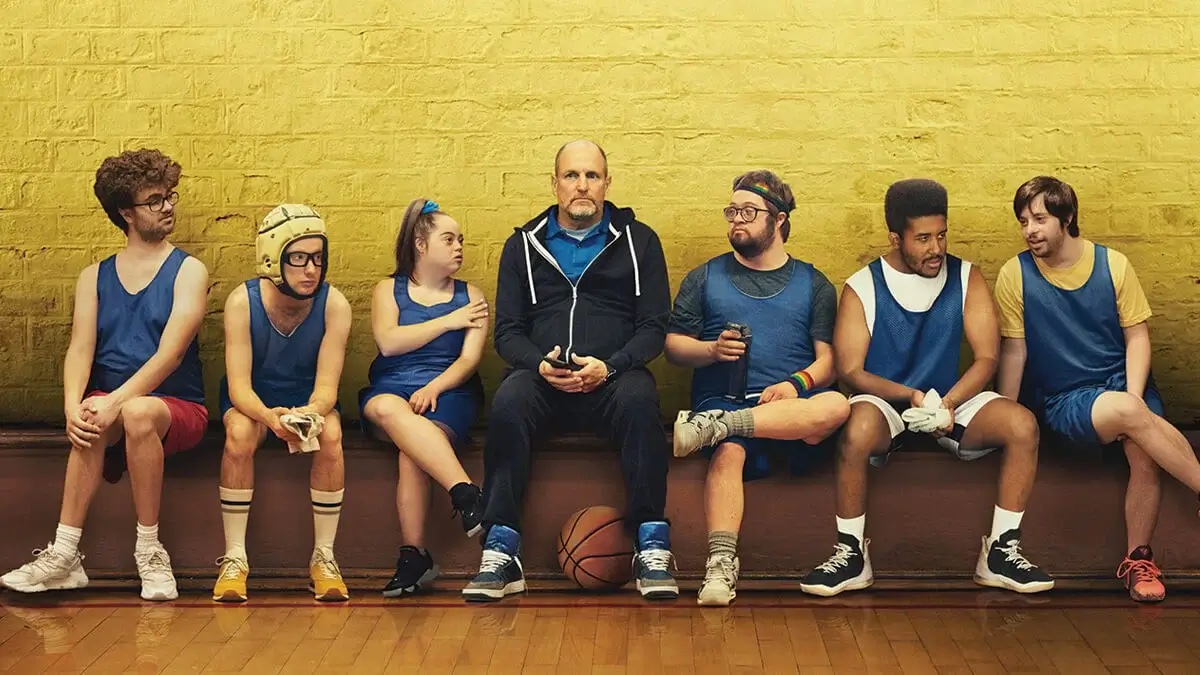
REVIEW: Champions (2023)
Bobby Farrelly (USA: 2023, 112 min.)

If the director of Dumb and Dumber To and Hall Pass was not at the top of your ‘directors I expected to make a film about representation for disabled persons,’ then you would be at the end of a line that runs out the door, around the block, and back again. While he and his brother Peter Farrelly are traditionally known for their raunchy, and often offensive, comedy productions, both have now trod into the territory of social commentary featuring the stories of minority groups, Champions and Green Book, respectively. Fortunately for Bobby, the story, presentation, and empowerment of its cast of disabled actors and characters had already been laid out to successful effect in its 2018 predecessor of the same name.
Based on the original Spanish-language film Campeones directed by Javier Fesser and written by David Marqués, this English language adaptation is a straight remake following the same overall trajectory and narrative beats. We follow former J-league basketball coach (just a few letters away from potentially reaching the B-league as astutely pointed out by Alex (Kaitlin Olson), at the end of a comically mediocre one-night stand) Marcus Marakovich (Woody Harrelson) after he is court-ordered as part of a community service plea to manage a local Des Moines based team of basketball players with intellectual disabilities. Marcus, a coach with NBA-level aspirations reluctantly swallows his pride only with the threat of 18 months jail time as the alternative.
After a Tinder hookup, a public display of aggression against his boss, and this latest drunk driving charge, the conflict is established between an egotistical and arrogant man seemingly past his prime (if he had one) with eyes only for redeeming his career in coaching professional basketball, where he repetitively claims to belong, and a group of intellectually disabled Des Moines, Iowa basketball players with little agenda beyond having the opportunity to spend time with their peers in a setting that encourages an escape from the challenges of their day-to-day lives. As a shortsighted leader whose downfall was partially due to his inability to connect with his players and colleagues on a personal level beyond the x’s and o’s, Marcus is quickly forced to realize through the help of the community recreation center’s down-to-earth and personable owner Julio (Cheech Martin) that the only path to success for himself and the group of colorfully idiosyncratic individuals he now finds himself in charge of is to bury his pride and connect with them as human beings.
Where the film could easily fall victim to the trope of an able-bodied hero figure claiming the credit and praise of the screenplay for their willingness to treat disabled people with respect as if that is an accomplishment greater than baseline human decency, the writing, to an extent, elevates this arc by sourcing the dramatic beats and humor through its supporting cast played with energetic and refreshing flair by disabled actors, many of which achieving their first credits. Madison Tevlin, Joshua Felder, Kevin Iannucci, Ashton Gunning, Matthew Von Der Ahe, Tom Sinclair, James Day Keith, Alex Hintz, Casey Metcalfe, and Bradley Edens as the members that compose ‘The Friends’ basketball team are the heartbeat of the film which not only celebrates their inclusion, but also acknowledges the three-dimensionality with which they live their lives and the obstacles they overcome in a society filled with ignorance and discrimination. Although the path to the championship regionals for The Friends is predictable in trajectory, Champions makes the case that narrative predictability is a worthy sacrifice when the intention is a message of powerful moral importance regarding the equity and inclusion of its characters.
Champions is not a film that is going to surprise audiences for its narrative or visual innovation. But as each teammate on The Friends will tell you, and as Cosentino will persuasively force you to believe with a finger pointed directly into your soul and a boogie board strapped to her back, these actors and characters are not defined by what they aren’t. The filmmaking supports this message best when it focuses on the stories of The Friends, but falls more flat and two-dimensional when it concentrates of Marcus’s arc. Although Harrelson’s role is not showy, he is adept to allow the color and spark of The Friends to shine. In a world where discrimination of people with disabilities remains a present reality, a film of this nature that depicts the overcoming of our implicit biases with a lighthearted and comedic core driven by a representational group of talented disabled actors is a film worth championing. Is Bobby Farrelly going to single-handedly change the state of the way disabilities are perceived in society through a predictable sports plot? Absolutely not. That is the onus of each and every audience member to educate themselves to lead an actively inclusive lifestyle for themselves and others. However, the support of a studio to offer an avenue for representation on screen is a respectable first step.
No Comments